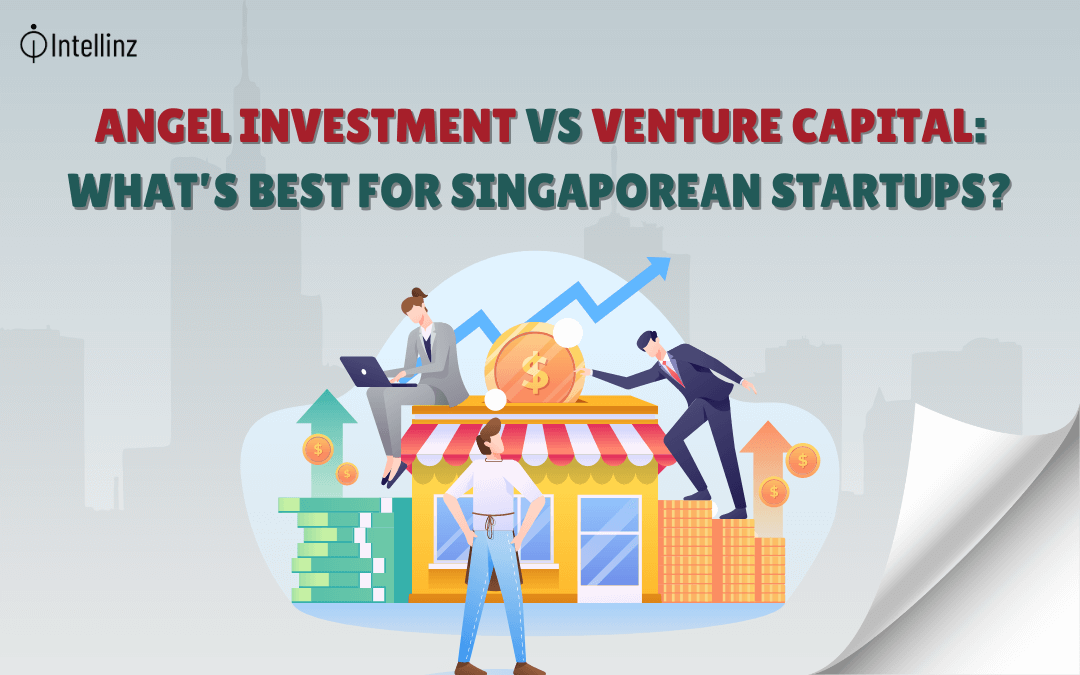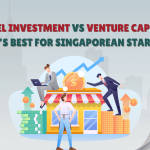Due to its thriving startup scene, Singapore is now recognized as one of Asia’s leading centers for innovation and entrepreneurship. The city-state is an ideal place for entrepreneurs to flourish because of its welcoming business climate, availability to funding, and backing from the government. Securing finance, however, is one of the most important problems that entrepreneurs encounter. Venture capital (VC) and angel investment are two popular early-stage funding options for entrepreneurs in Singapore. Both are essential to the funding of start-ups, but they differ in how they go about things, how much money they put in, and how involved they are in the firm.
This article examines the distinctions between venture capital and angel investment, assisting Singaporean businesses in selecting the best course of action for their future development.
Understanding Angel Investment
High-net-worth people, or angel investors, frequently invest their own funds in early-stage firms in exchange for equity ownership. Angel investors frequently give firms in Singapore seed money or early-stage cash to help them get off the ground. Since they are placing their money on unproven theories or fledgling companies, they are typically more willing to take on risk than other investors.
Characteristics of Angel Investment:
- Smaller Investment Amounts: In contrast to venture capital organizations, angel investors typically make lower investments. Angel investments typically vary from SGD 50,000 to SGD 500,000, contingent upon the investor’s financial capabilities and the startup’s promise.
- Early-Stage Focus: Angel investors frequently enter the market during the pre-seed or seed stage, giving firms vital early funding at a time when they do not yet have a substantial income stream or a product-market fit.
- High Risk, High Reward: Angel investors take on greater risk because they are funding firms at an early stage. Nonetheless, if the startup is successful and expands greatly, they could benefit greatly.
- Less Structure, More Flexibility: Compared to venture capital agreements, angel investments are typically less formal. Since they frequently rely on personal connections and trust with founders, angel investors may be more lenient when it comes to restrictions and conditions.
- Hands-On Involvement: A large number of angel investors have worked in the startup ecosystem as professionals or as previous business owners. In addition to financial help, they frequently offer mentorship, industry connections, and strategic advice.
Understanding Venture Capital
Institutional investors or venture capital firms that oversee pooled assets from several sources, such as corporations, affluent people, and pension funds, are involved in venture capital (VC). These businesses make investments in rapidly expanding startups that have room to develop. VCs, as opposed to angel investors, usually make larger investments and anticipate a formal, long-term partnership with the business.
Characteristics of Venture Capital:
- Larger Investment Amounts: In subsequent rounds, venture capitalists frequently invest tens of millions of dollars, having started with SGD 1 million. Typically, they go after newly established businesses that have shown signs of growth or income potential.
- Growth Stage Focus: Although some venture capitalists (VCs) might take part in early-stage rounds, the majority concentrate on Series A and later businesses that have validated their business model and are aiming to expand.
- Institutional Backing: VC firms are subject to stricter due diligence criteria and operate with institutional support, which confers additional accountability. Their investment procedures are more methodical and polished.
- Exit-Oriented: Returns and exit tactics are the main concerns of venture investors. Within five to seven years, they usually hope to see a sizable return on their investment, frequently via a sale, acquisition, or initial public offering (IPO).
- Active Involvement and Control: Venture capitalists (VCs) frequently adopt a more hands-on approach in the firm, occasionally demanding board seats and a major voice in strategic choices. Their goal is to accelerate growth in order to optimize valuation for a potential exit.
Which is Better for Singaporean Startups?
The stage of the firm, its financial requirements, and its long-term objectives all influence the decision between venture capital and angel financing. Here’s how to figure out which might be the best choice:
1. Early-Stage Startups (Pre-Seed/Seed)
Angel financing is usually a better alternative for firms that are in their early phases, where the idea is still being developed or where the product-market fit is not yet established. Angel investors are frequently driven by industry passion or a personal conviction in the founders, which makes them more willing to take a chance on an unproven business idea. Angel investors are a good option for startups that want less money for their first product development, testing, and market launch. They can also provide important connections and mentorship.
2. Startups with High Growth Potential
Venture finance can be the next natural step for your firm if it has already shown that it has large market potential, has a working product, and is making money. Venture capitalists tend to be more drawn to scalable companies that have room to grow quickly. Venture capital is more likely to be drawn to startups that require significant finance in order to grow their staff, penetrate new markets, or scale operations. To further aid in growth acceleration, venture capital firms can offer networks, in-depth market knowledge, and strategic advice.
3. Flexibility vs. Structure
Angel investors frequently offer more latitude in terms of founder control and investment terms. Angel finance can be a better option if you value maintaining more autonomy over decision-making and would rather have a less formal relationship with your investors. In contrast, venture capital firms might demand formal contracts and have more influence over company choices; these might be necessary trade-offs for higher funding levels.
4. Long-Term Vision and Exit Strategy
Venture finance might be a preferable choice for startups seeking fast growth and medium-term exit strategies (like an IPO or acquisition). Venture capitalists generally aim to propel rapid expansion and set up firms for a profitable exit in five to seven years. Angel investors are better suited for businesses with a longer-term vision or a more steady growth trajectory since they may be more patient and ready to wait longer for profits.
Conclusion
Angel investment and venture capital have unique benefits for businesses in Singapore; however, the selection of the most suitable choice is contingent upon the stage of development of the startup, its funding requirements, and its growth objectives. Angel financing is best suited for early-stage firms that value flexibility and mentoring and require lower amounts of funding. Contrarily, firms with validated business plans that are prepared to develop and need greater sums of money to do so are stronger candidates for venture capital.
Before choosing which kind of funding best suits their needs, Singaporean businesses should evaluate their long-term ambition, funding requirements, and amount of investor participation.
Looking for more interesting blog articles? Check out our website at https://intellinz.com/ to explore our blogs and discover how our Intellinz platform can support you on your investment journey.






